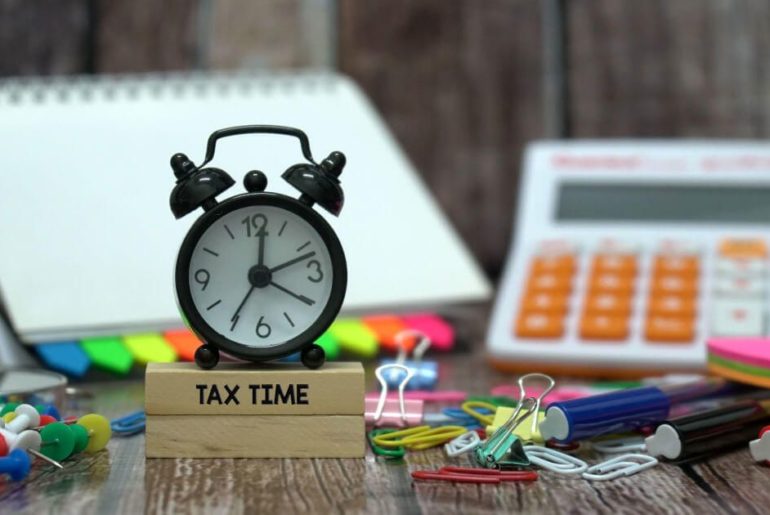Income tax laws in India state that any revenue generated by an individual by implementing their intellectual or manual skills is considered an income from a profession. And the income you earn is the sum of all receipts that you get from your clients.
Like a salaried individuals, freelancers are also responsible to pay taxes on their Income. But, as they can have multiple sources of revenue looks complicated.
In this article, we will try to cut the frills of income tax for freelancers, consultants, homepreneurs and the like.
Related Read: GST For Freelancers: Registration Process, Rates and Calculations
Income tax slabs for freelancers
The income tax slabs for freelancers are the same as that for salaried individuals. The higher your income, the more the tax. The same is calculated as below.
As per New Income Tax Slab:
| INCOME | TAX |
| Rs 2.5 lakhs | Nil |
| Rs 2.5 to 5 lakhs | 5% |
| Rs 5 to 7.5 lakhs | 10% |
| Rs 7.5 to 10 lakhs | 15% |
| Rs 10 to 12.5 lakhs | 20% |
| Rs 12.5 to 15 lakhs | 25% |
| Rs 15 lakhs and above | 30% |
As per Old Income tax slabs:
| INCOME | TAX |
| Rs 2.5 Lakhs | Nil |
| Rs 2.5 to 5 Lakhs | 5% |
| Rs 5 to 10 Lakhs | 20% |
| Rs 10 Lakhs and above | 30% |
ITR Filing Process for Freelancers
- Vist Income tax Portal
- ITR-4 is the income tax form for freelancers and consultants
- Fill up all the necessary details of the ITR-4 Form, which includes deductions and taxable income, details of income from business and profession, general information, gross total income, TDS details, and details of advance tax and self-assessment tax.
What is taxable income for a freelancer?
According to Section 80 of the Income Tax Act, a freelancer can cut down his/her tax outgo by more than Rs 1.5 lakh if they invest a specific amount in tax-saving instruments.
Tax Exemptions under Section 80C
| Section | Exemption |
| 80 C | Deduction up to Rs 1.5 Lacs – Applicable for the investment made towards provident fund, insurance, ELSS, tuition fees, FDs, etc |
| 80 CCC | Applicable for pension plans – The maximum exemption limit is Rs 1.5 lakhs |
| 80 CCD | Investment in central government schemes |
| 80 CCF | Investment in government notified long-term infrastructure bonds – Exemption limit of up to Rs 20,000 |
Tax Exemptions under Section 80D
| 80 D | Premiums for health insurance are exempted |
| 80 DD | Treatment for disabilities – Exemption limit of up to Rs 1.5 Lacs |
| 80 DDB | Treatment for specific diseases |
| 80 E | Education loan |
| 80 EE | Loan, buying a property |
| 80 G | Donation made to a charitable trust, PM relief fund – 100% exemption |
Note: Net Taxable Income = Gross Taxable Income – Deductions
Freelancers who are just below the age of 60 and have an income of around Rs 2.5 lakhs per annum also qualify to pay taxes on their revenue.
According to Section 194J of the Income Tax Act, every professional service rendered by you is subject to 10% TDS. Like every salaried individual, freelancers can also claim a refund on TDS.
How to claim expenses to reduce tax liability?
Before understanding the term ‘expenses’, here are some of the essential conditions that should be followed.
- The expenses must be directly proportional to the amount spent while carrying out a specific task.
- The expenses must be drawn during the relevant financial year.
- The expenses must not include any capital or personal expenditures of the freelancers.
- Any kinds of criminal activity should not cumulate the expenses.
These expenses fall under travel to the client location, hospitality, office supplies, property rent, entertainment, meals, etc.
These expenses can be deducted from your gross taxable income to reduce your tax outgo. The Income Tax Act allows you to do this because these expenses are incurred for the purpose of acquiring and delivering your work.
How to calculate advance tax for Freelancer?
As simple as walking the line, follow these steps
- Collect your invoices and receipts and calculate your total income.
- Calculate your expenses and subtract them from your earnings.
- Do not forget to include income from other sources like savings accounts and properties.
- Calculate your tax after reviewing your total income against the tax slabs.
Advance tax calendar
| Deadline | Advance tax to be paid |
| Before 15th September | 30% of the payable tax |
| Before 15th December | 60% of the payable tax |
| Before 15th March | 100% of the payable tax |
To summarise
Before we end here a few critical points to remember:
- If the tax liability of a freelancer does not exceed more than Rs.10,000 for a financial year, he/she need not pay taxes
- If a freelancer fails to pay advance tax, then he/she is liable to pay interests mentioned Under Section 234B and Section 234C
From a taxation perspective, freelancers fall under small businesses. And paying taxes is considered a civic duty. Taxes help the government pay salaries, construct roads and public buildings, hospitals, and provide shelter and food to the less fortunate.
FAQs on Tax On Freelancer
1. Do freelancers need to pay tax in India?
Yes, like individual freelancers also need to pay income tax.
2. Which IT form can freelancers use to file returns?
Freelancers can file income tax returns by using the ITR-4 form.
3. Is TDS applicable for freelancer?
In case of professional services, TDS is applicable at a rate of 10%.

